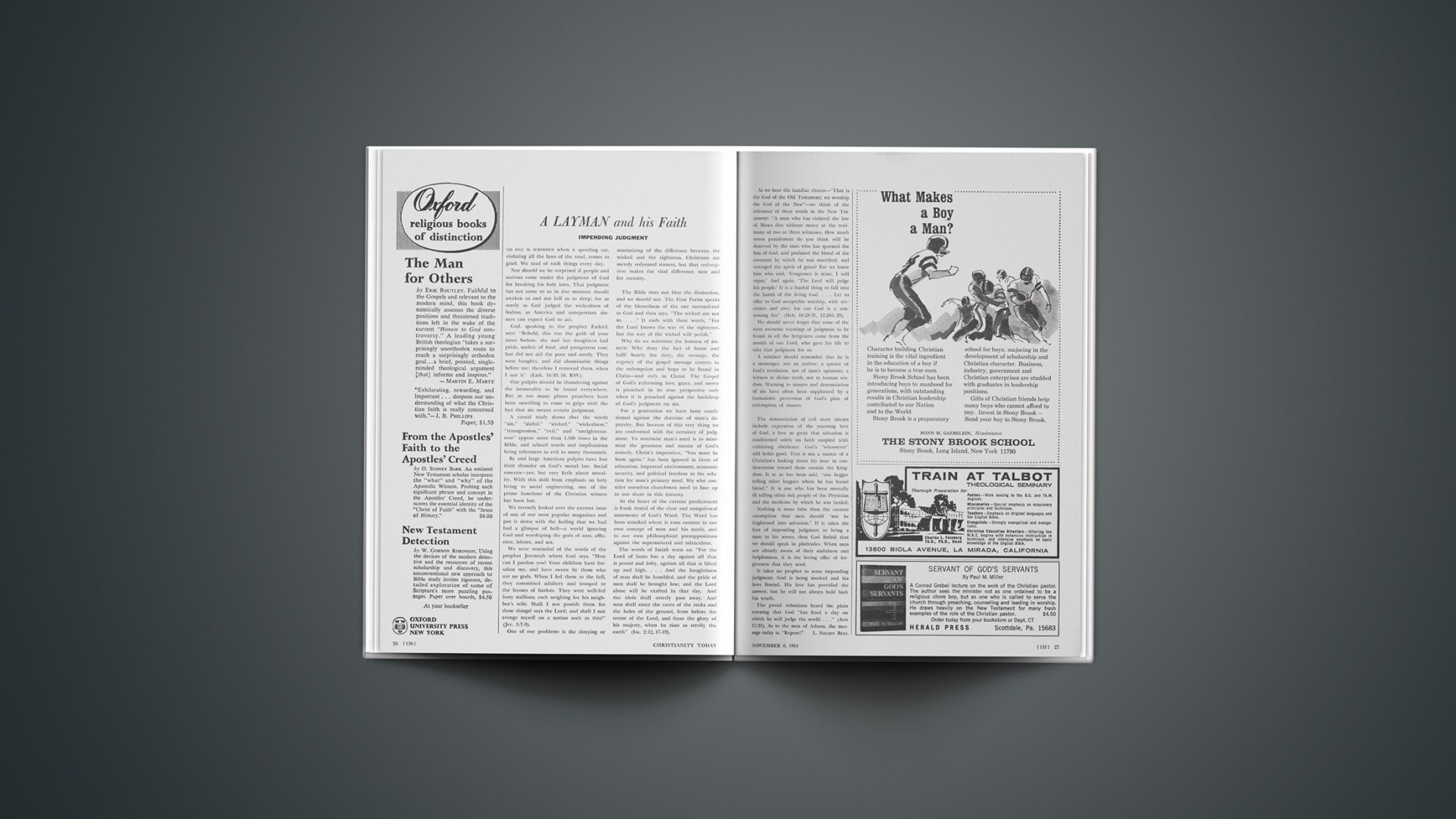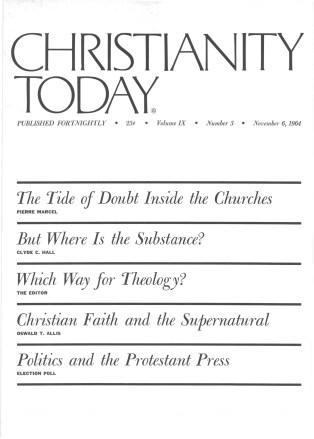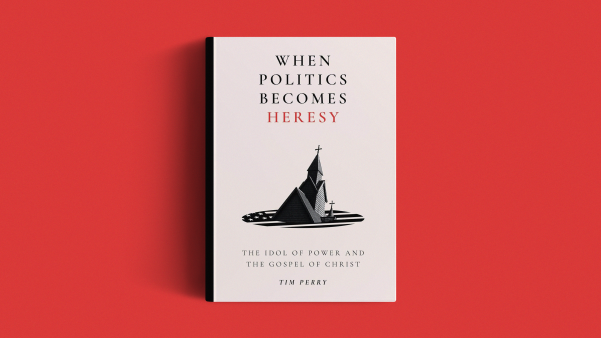No one is surprised when a speeding car, violating all the laws of the road, comes to grief. We read of such things every day.
Nor should we be surprised if people and nations come under the judgment of God for breaking his holy laws. That judgment has not come to us in due measure should awaken us and not lull us to sleep; for as surely as God judged the wickedness of Sodom, so America and unrepentant sinners can expect God to act.
God, speaking to the prophet Ezekiel, says: “Behold, this was the guilt of your sister Sodom: she and her daughters had pride, surfeit of food, and prosperous ease, but did not aid the poor and needy. They were haughty, and did abominable things before me: therefore I removed them, when I saw it” (Ezek. 16:49, 50, RSV).
Our pulpits should be thundering against the immorality to be found everywhere. But in too many places preachers have been unwilling to come to grips with the fact that sin means certain judgment.
A casual study shows that the words “sin,” “sinful,” “wicked,” “wickedness,” “transgression,” “evil,” and “unrighteousness” appear more than 1,500 times in the Bible, and related words and implications bring references to evil to many thousands.
By and large American pulpits have lost their thunder on God’s moral law. Social concern—yes; but very little about morality. With this shift from emphasis on holy living to social engineering, one of the prime functions of the Christian witness has been lost.
We recently looked over the current issue of one of our most popular magazines and put it down with the feeling that we had had a glimpse of hell—a world ignoring God and worshiping the gods of ease, affluence, leisure, and sex.
We were reminded of the words of the prophet Jeremiah where God says, “How can I pardon you? Your children have forsaken me, and have sworn by those who are no gods. When I fed them to the full, they committed adultery and trooped to the houses of harlots. They were well-fed lusty stallions, each neighing for his neighbor’s wife. Shall I not punish them for these things? says the Lord; and shall I not avenge myself on a nation such as this?” (Jer. 5:7–9).
One of our problems is the denying or minimizing of the difference between the wicked and the righteous. Christians are merely redeemed sinners, but that redemption makes the vital difference, now and for eternity.
The Bible does not blur the distinction, and we should not. The First Psalm speaks of the blessedness of the one surrendered to God and then says, “The wicked are not so.…” It ends with these words, “For the Lord knows the way of the righteous, but the way of the wicked will perish.”
Why do we minimize the lostness of sinners? Why deny the fact of Satan and hell? Surely the duty, the message, the urgency of the gospel message centers in the redemption and hope to be found in Christ—and only in Christ. The Gospel of God’s redeeming love, grace, and mercy is preached in its true perspective only when it is preached against the backdrop of God’s judgment on sin.
For a generation we have been conditioned against the doctrine of man’s depravity. But because of this very thing we are confronted with the certainty of judgment. To minimize man’s need is to minimize the greatness and nature of God’s remedy. Christ’s imperative, “You must be born again,” has been ignored in favor of education, improved environment, economic security, and political freedom as the solution for man’s primary need. We who consider ourselves churchmen need to face up to our share in this travesty.
At the heart of the current predicament is frank denial of the clear and unequivocal statements of God’s Word. The Word has been attacked where it runs counter to our own concept of man and his needs, and to our own philosophical presuppositions against the supernatural and miraculous.
The words of Isaiah warn us: “For the Lord of hosts has a day against all that is proud and lofty, against all that is lifted up and high.… And the haughtiness of man shall be humbled, and the pride of men shall be brought low; and the Lord alone will be exalted in that day. And the idols shall utterly pass away. And men shall enter the caves of the rocks and the holes of the ground, from before the terror of the Lord, and from the glory of his majesty, when he rises to terrify the earth” (Isa. 2:12, 17–19).
As we hear the familiar chorus—“That is the God of the Old Testament; we worship the God of the New”—we think of the relevance of these words in the New Testament: “A man who has violated the law of Moses dies without mercy at the testimony of two or three witnesses. How much worse punishment do you think will be deserved by the man who has spurned the Son of God, and profaned the blood of the covenant by which he was sanctified, and outraged the spirit of grace? For we know him who said, Vengeance is mine, I will repay.’ And again, ‘The Lord will judge his people.’ It is a fearful thing to fall into the hands of the living God.… Let us offer to God acceptable worship, with reverence and awe; for our God is a consuming fire” (Heb. 10:28–31, 12:28b, 29).
We should never forget that some of the most awesome warnings of judgment to be found in all the Scriptures come from the mouth of our Lord, who gave his life to take that judgment for us.
A minister should remember that he is a messenger, not an author; a quoter of God’s revelation, not of man’s opinions; a witness to divine truth, not to human wisdom. Warning to sinners and denunciation of sin have often been supplanted by a humanistic perversion of God’s plan of redemption of sinners.
The denunciation of evil must always include expression of the yearning love of God, a love so great that salvation is conditioned solely on faith coupled with validating obedience. God’s “whosoever” still holds good. This is not a matter of a Christian’s looking down his nose in condescension toward those outside the Kingdom. It is, as has been said, “one beggar telling other beggars where he has found bread.” It is one who has been mortally ill telling other sick people of the Physician and the medicine by which he was healed.
Nothing is more false than the current assumption that men should “not be frightened into salvation.” If it takes the fear of impending judgment to bring a man to his senses, then God forbid that we should speak in platitudes. When men are already aware of their sinfulness and helplessness, it is the loving offer of forgiveness that they need.
It takes no prophet to sense impending judgment. God is being mocked and his laws flouted. His love has provided the answer, but he will not always hold back his wrath.
The proud Athenians heard the plain warning that God “has fixed a day on which he will judge the world …” (Acts 17:31). As to the men of Athens, the message today is, “Repent!”










